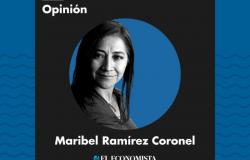
The obesity It is one Chronic disease characterized by a abnormal or excessive accumulation of body fat which can be harmful to Health.
The latest data from the world Health Organization They are relative to 2022, and they emphasize that, in that year, One in eight people in the world was Obesa and that since 1990 Obesity has far duplicated among adults around the world, and has fought among adolescents.
He Overweight and obesity They can be developed over time if we consume more calories we are used. This is also known as energy imbalance. When the energy that enters (calories) is not equal to the energy that comes out (calories that the body uses for actions such as breathing, digest food and do physical activity), that occurs Energy imbalance.
Obesity risk factors
Las Causes of obesity are multiple and complex. In general it is accepted that the cause of this disease is a Energy imbalancehowever, obesity is not simply the result of excess eating. Epidemiological studies have detected in the population Other factors associated with this condition.
Among these factors is Age (As we age, hormonal changes and a less active lifestyle contribute to the appearance of obesity), The female sex (Mainly associated with pregnancy, menopause and women who have polycystic ovary syndrome) or The race (High degree of incidence in Afro -descendants and people of Hispanic origin).
In the development of this disease, a unhealthy food (Foods rich in fat, salt and sugars. Abuse of fast foods), Sedentary lifestyle, Smokingo alcohol intake. However, some studies have shown that obesity may be due to genetic factors or be caused by some medications.
In addition, it is known that food duration, The chewing speed o The number of snacks or chewing They can give very relevant data about our Food behavior. If this is abnormal, it can cause us obesity.
Alamy Stock Photo
Couple eating ice cream
Those who eat fast are more prone to obesity
A new study prepared by Japanese researchers has shown that eating habits They perform a fundamental role in obesity and metabolic syndrome. In the study, researchers have analyzed factors that influence the duration of meals like the sex differenceslos chewing patterns and the rhythmic signals.
The study results claim that Those who eat fast are more prone to obesity. Therefore, they suggest that eating more slowly can help reduce food intake. According to these researchers, Increase the number of chews and snacksas well as force people to adopt a slower pacewould prolong the duration of meals in obese subjects.
Other conclusions are also extracted from this study such as Reproduce relaxing music During meals it could also be effective in prolonging the duration of meals, to eat more complicated food to chew It could also influence the duration, or that Increase the number of snacks eating with small snacks or using a small spoon It could also help these patients.





